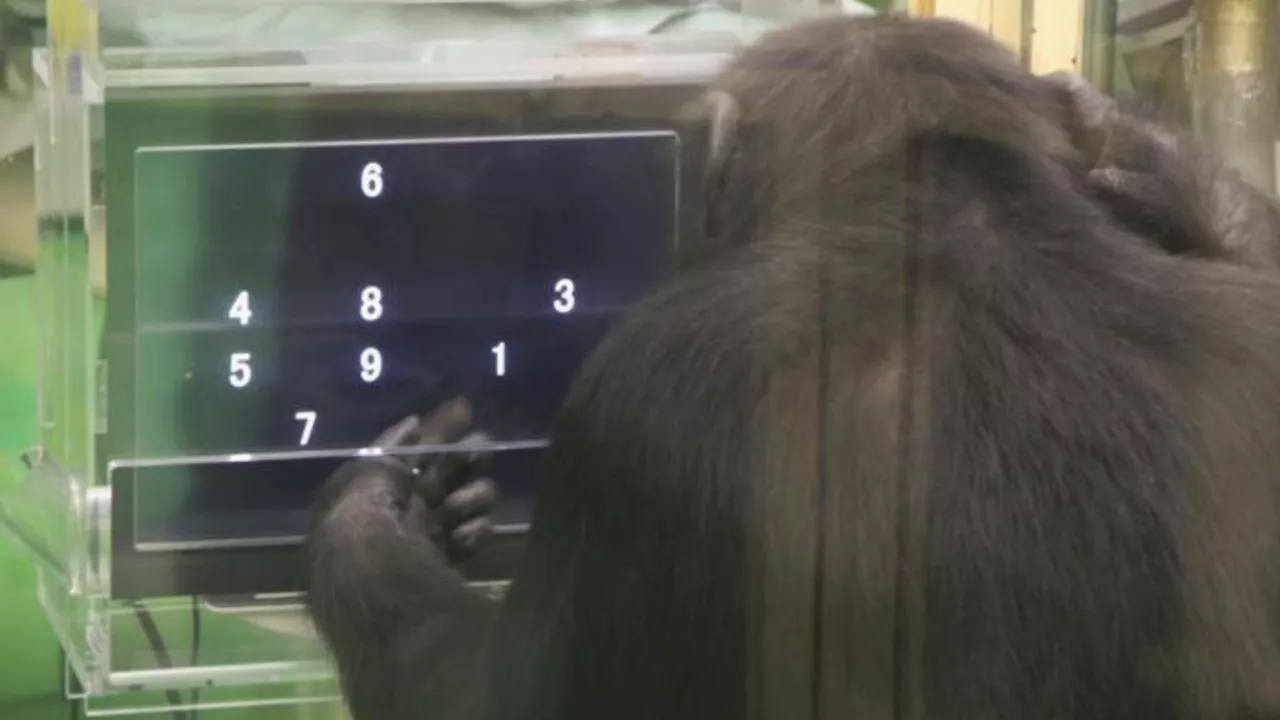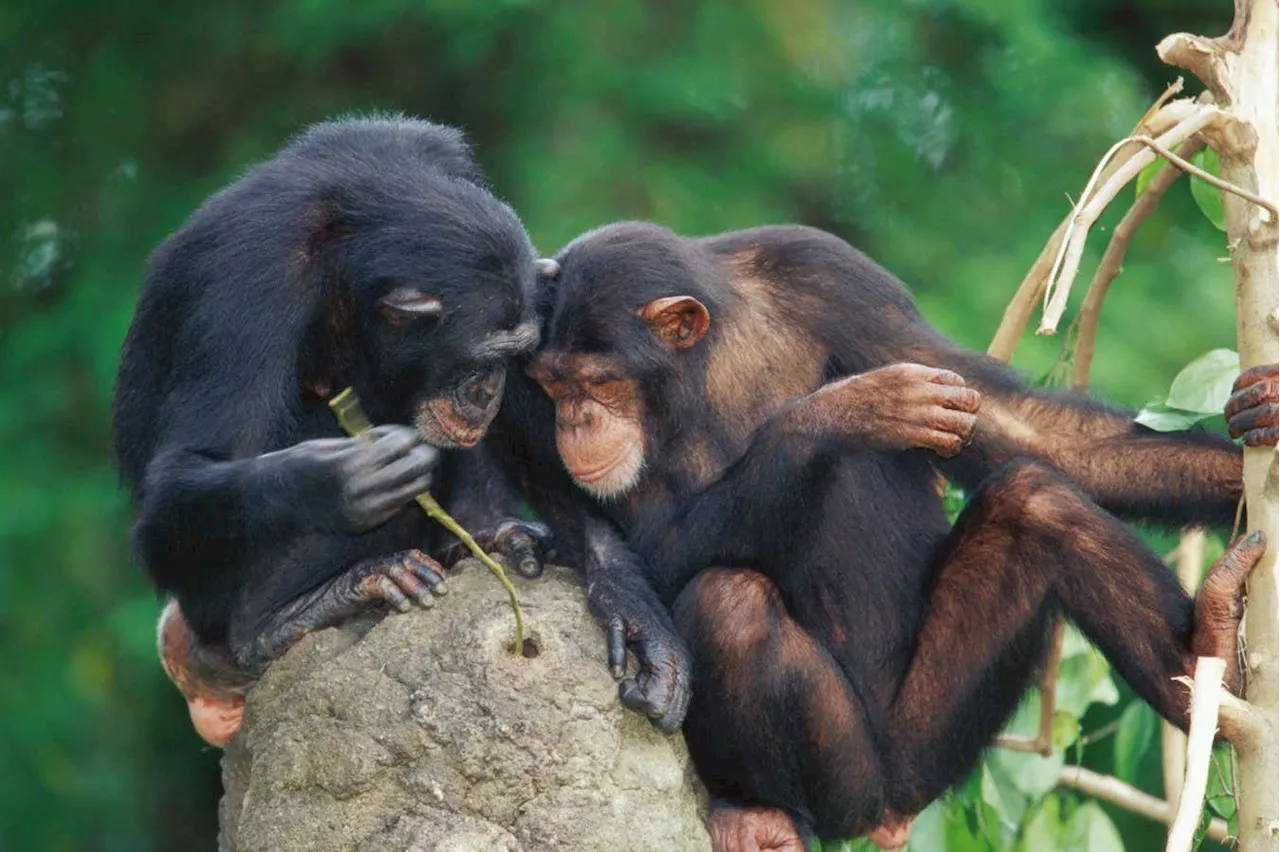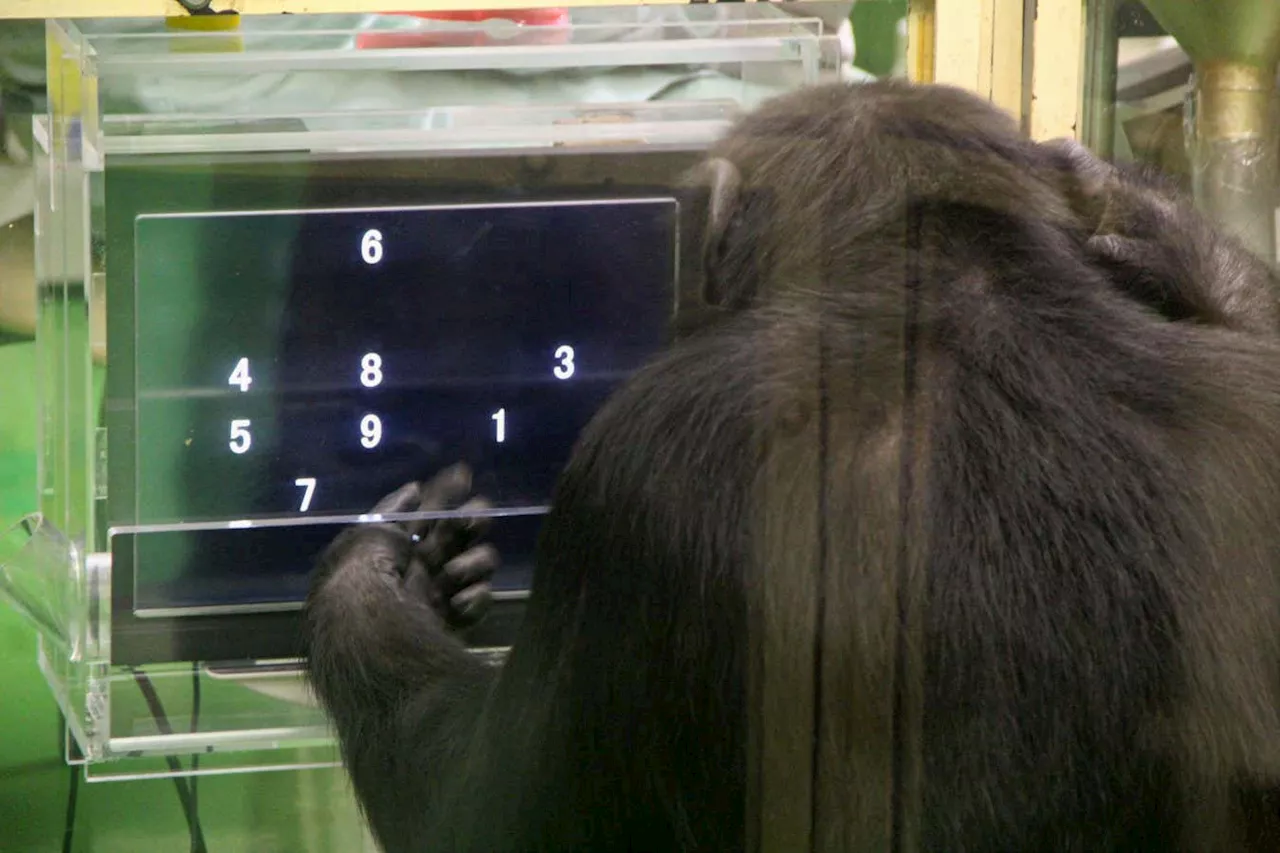A new study suggests that the fundamental abilities underlying human language and technological culture may have evolved before humans and apes diverged millions of years ago.
The findings will be published 5th December 2024 in the journalMany human behaviours are more complex than those of other animals, involving the production of elaborate sequences . These sequences include the ability to organise behaviours by hierarchical chunks, and to understand relationships between distantly separated elements.
The study used data from a decades-long database of video footage depicting wild chimpanzees in the Bossou forest, Guinea, where chimps were recorded cracking hard-shelled nuts using a hammer and anvil stones. This is one of the most complex documented naturally-occurring tool use behaviours of any animal in the wild. The researchers recorded the sequences of actions chimps performed -- totalling around 8,260 actions for over 300 nuts.
Additionally, the results suggest that the majority of chimpanzees organise actions similarly to humans, through the production of repeatable 'chunks'. However, this result did not hold for every chimpanzee, and this variation between individuals may suggest that these strategies for organising behaviours may not be universal in the way they are for humans.
Co-senior researcher Professor Dora Biro said:"There is increasing recognition that preserving cultural behaviours in wild animals -- such as stone-tool use in West-African chimpanzees -- should be incorporated into conservation efforts. Wild chimpanzees and their cultures are critically endangered, yet our work highlights how much we can yet learn from our closest relative about our own evolutionary history.
Cumulative culture -- the accumulation of technological modifications and improvements over generations -- allowed humans to adapt to a diversity of environments and challenges. But, it is unclear ...
Behavioral Science Wild Animals Nature Cultures Early Humans Human Evolution Anthropology
United States Latest News, United States Headlines
Similar News:You can also read news stories similar to this one that we have collected from other news sources.
 Chimpanzees show surprising computer skills when watched by more humans: StudyThe researchers studied chimpanzees interacting with touch screens, observing how their performance changed based on the number of human observers.
Chimpanzees show surprising computer skills when watched by more humans: StudyThe researchers studied chimpanzees interacting with touch screens, observing how their performance changed based on the number of human observers.
Read more »
 Chimpanzees perform better on challenging computer tasks when they have an audienceWhen people have an audience watching them, it can change their performance for better or worse. Now, researchers have found that chimpanzees' performance on computer tasks is influenced by the number of people watching them.
Chimpanzees perform better on challenging computer tasks when they have an audienceWhen people have an audience watching them, it can change their performance for better or worse. Now, researchers have found that chimpanzees' performance on computer tasks is influenced by the number of people watching them.
Read more »
 These wild chimpanzees play as adults to better cooperate as a groupCompared to children, adults don't play as much, but social play into adulthood is considered a universal human trait. Play has a role in building tolerance, cohesion, bonding, and cooperation.
These wild chimpanzees play as adults to better cooperate as a groupCompared to children, adults don't play as much, but social play into adulthood is considered a universal human trait. Play has a role in building tolerance, cohesion, bonding, and cooperation.
Read more »
 Chimpanzees seem to get more technologically advanced through cultureGroups of wild chimpanzees with more complex tool-using behaviours tend to be genetically linked, providing evidence for cumulative culture in other apes
Chimpanzees seem to get more technologically advanced through cultureGroups of wild chimpanzees with more complex tool-using behaviours tend to be genetically linked, providing evidence for cumulative culture in other apes
Read more »
 Friendly social behaviors are contagious for chimpanzeesChimpanzees are more likely to engage in play or groom each other if they see others performing these social behaviors first, researchers report.
Friendly social behaviors are contagious for chimpanzeesChimpanzees are more likely to engage in play or groom each other if they see others performing these social behaviors first, researchers report.
Read more »
 Chimps do better at difficult tasks when they have an audienceAn analysis of thousands of cognitive tests carried out by chimpanzees finds that the number of spectators influenced their performance in different ways depending on the difficulty of the task
Chimps do better at difficult tasks when they have an audienceAn analysis of thousands of cognitive tests carried out by chimpanzees finds that the number of spectators influenced their performance in different ways depending on the difficulty of the task
Read more »
